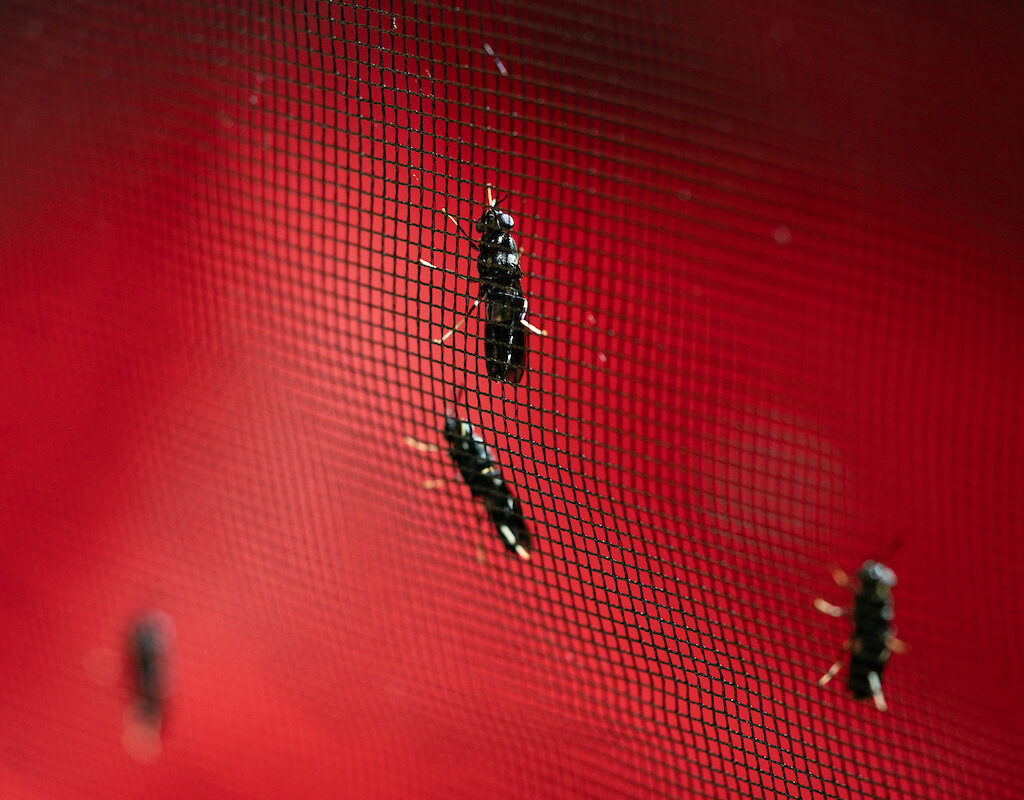Livestock Veterinary Entomology
- Type
- Program

Overview
Contact
Stephenville, TX 76401
8:00 AM – 5:00 PM
Livestock veterinary entomology is the evaluation and understanding of ectoparasites that bite and feed on livestock and companion animals, thus affecting the animals' thriftiness, behavior, and lifestyle. Insects are a major cause of mortality and reduced productivity in domestic livestock. The insects cause this damage directly by feeding on or parasitizing livestock, or indirectly, by transmitting livestock diseases.
More choices in Livestock & Poultry
- Course
This course aims to help beef cattle producers protect Texas waterways from contamination that is linked with the production of livestock. These contaminations may also pose a health risk to Texas citizens.
- Course
This course is for beginners that want to learn more about raising sheep and goats. Texas A&M AgriLife Extension specialists use videos to guide you through the first steps to get your production going.
- Course
Join Texas A&M poultry experts to learn what it takes to raise poultry for 4-H or FFA.
- Course
This course provides accreditation for poultry producers in nuisance odor prevention. Topics include methods for reducing odors, tips for land application of litter, and state-mandated odor control plans.
- Course
This course is designed for youth and collegiate horse judging team members, their coaches, and anyone interested in learning more about horse judging. Learning objectives include understanding the rules for each class, applying the judging guidelines to each class, and learning to articulate placings during oral reasons.
- Publication
This factsheet covers how to identify potential hyperinsulinema in horses and how to manage the condition.
